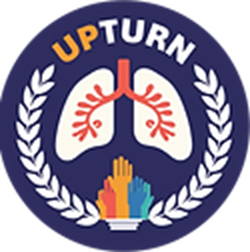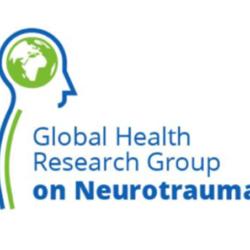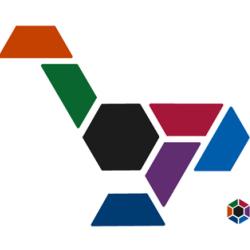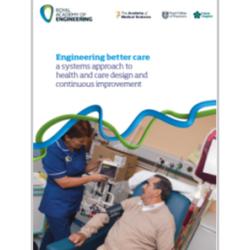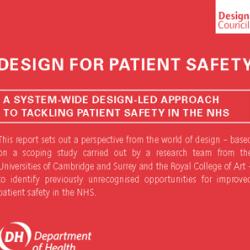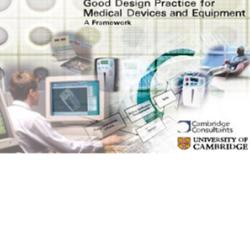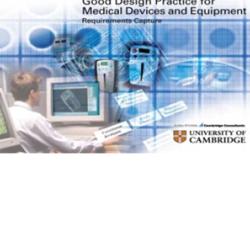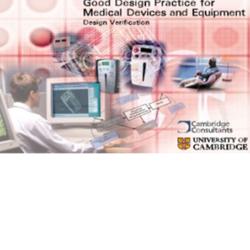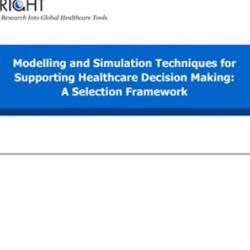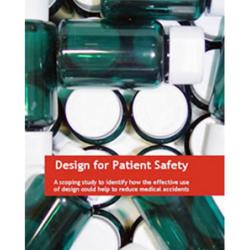
Improving Improvement
The Health Systems Design Group researches the role of systems thinking in the UK Health Service as a means to deliver safe, effective and affordable care. In particular, we are researching how to define and embed an evidence-based systems engineering culture in the UK Health Service to improve service quality:
- by developing new models of innovation practice for healthcare practitioners and providers;
- by delivering a framework and tools for improving improvement into the UK Health Service;
- by establishing a centre for interdisciplinary systems improvement research in the UK.
There is much scope for transferring the necessary knowledge and practice from other safety-critical industries, such as nuclear, aviation and defense, where systems thinking, design and risk assessment and management are well established. However, it is crucially important that any solutions that are identified are informed by current healthcare culture and practice.
In close collaboration with local and regional healthcare trusts, we have developed a Systems Safety Assessment toolkit for managing risk and the Improving Improvement Toolkit for guiding the innovation and quality improvement processes.
For people interested in further study, in 2022 we launched a new three-year part-time MSt course in Healthcare Innovation, see here.
Group Members
- Professor P John Clarkson (Group Leader)
- Professor Tom Bashford (Assistant Professor in Healthcare Systems & Consultant Neuroanaesthetist)
- Professor James Ward (Research Professor, Associate Teaching Professor and Course Director for the Healthcare Innovation Programme)
- Mike Bradley (Senior Research Associate researching design innovation)
- Dr Brandon Smith (Research Assistant in ABSI project)
- Dr Laura Hobbs (Research Student)
- David Stell (Research Student)
- Dr Saleyha Ahsan (Research Student)
- Dr Michael Bath (Research Student)
- Hanushree Arumugam (Research Student)
- Garret Tan (Research Student)
- Kanchen Rajanna (Research Student)
- Georgios Papanikolaou (Research Student)
- Anastasia Perysinakis (Research Student)
- Dr Alexander Komashie (Visiting Research Fellow)
- Dr Ben Bowers (Visiting Research Fellow)
- Dr Guillaume Lamé (Research Associate at THIS Institute)
- Dr Katharina Kohler (Academic Visitor researching emergency surgical pathways)
- Dr Kirsten Rennie (Academic Research Fellow)
- Dr Coco Newton (Visiting Research Fellow)
Associated Projects
|
Co-design and evaluation of an intervention to increase UPTake of pUlmonary RehabilitatioN for people living with chronic obstructive pulmonary disease) is a new 5-year, £2.8m research programme funded by the National Institute for Health and Care Research (NIHR). The study aims to help people with Chronic Obstructive Pulmonary Disease (COPD) take up, and therefore benefit from, Pulmonary Rehabilitation (PR). |
|
|
NIHR Global Health Research Group on Neurotrauma (GHRGN) The NIHR Global Health Research Group on Neurotrauma is a global partnership of researchers interested in improving the provision of care to patients suffering neurotrauma, with the EDC developing a methodology to assist understanding of the complex systems of care in low and middle income countries. |
|
|
Approximately 50,000 people leave mental health hospitals every year. Being discharged from hospital is a critical transition point in the individual’s journey to personal recovery. Many people find being discharged an overwhelming and distressing situation. The MINDS study wants to improve the experience of mental health hospital discharges for all. |
Tools
|
This toolkit follows from the Royal Academy of Engineering's Engineering Better Care report, providing a practical systems approach to health and care design and continuous improvement. It contains a framework of questions, activities and tools to assist in the planning and delivery of an improvement process. |
|
|
Systems Safety Assessment Toolkit System Safety Assessment is a method to help healthcare staff think about ‘what could go wrong’ in a healthcare system, where a system could be anything from a care pathway to a project plan for a service improvement, to a new ward or even the movement of a service from acute care to the community. |
Books
|
John Clarkson, David Bogle, John Dean, Mark Tooley, John Trewby, Louella Vaughan, Emma Adams, Peter Dudgeon, Nicola Platt, Philippa Shelton. RAEng. This report, the result of a collaboration between the Royal Academy of Engineering, Royal College of Physicians and the Academy of Medical Sciences, provides a description of a systems approach, expressed as a series of ordered questions, to explore people, systems, design and risk perspectives on a system. |
|
|
John Clarkson. Cambridge Engineering Design Centre. This toolkit follows from the Royal Academy of Engineering's Engineering Better Care report, providing a practical systems approach to health and care design and continuous improvement. It contains a framework of questions, activities and tools to assist in the planning and delivery of an improvement process. |
|
|
Peter Buckle, John Clarkson, Roger Coleman, James Ward, Jerome Jarrett. Design Council. This report, commissioned by the Department of Health and the Design Council sets out a perspective from the world of design. It is based on a scoping study, carried out by the Universities of Cambridge and Surrey and the Royal College of Art, to identify previously unrecognised opportunities for improved patient safety in the NHS. |
|
|
Good Design Practice for Medical Devices and Equipment - A Framework Karen Alexander, John Clarkson, Duncan Bishop, Stewart Fox. Cambridge Engineering Design Centre. This workbook is aimed at designing medical devices to make them easier and more economic to validate. An approach is presented which focuses on the design process and considers validation, design requirements and risk management of the device and the related process equipment together. |
|
|
Good Design Practice for Medical Devices and Equipment - Requirements Capture Sandra Shefelbine, John Clarkson, Roy Farmer, Stephen Eason. Cambridge Engineering Design Centre. This workbook contains a method for capturing requirements and is intended to be used by medical device designers, engineers, project managers and procurement personnel. Previous experience in writing specifications is not necessary, but experience in medical device design is likely to be helpful. |
|
|
Good Design Practice for Medical Devices and Equipment - Design Verification James Ward, John Clarkson, Duncan Bishop, Stewart Fox. Cambridge Engineering Design Centre. This workbook presents an approach for identifying and selecting verification methods and determining when verification should occur in the design process. It should be used in conjunction with pre-existing working practices and in addition to current regulations for medical device and equipment design. |
|
|
Modelling and Simulation Techniques for Supporting Healthcare Decision Making Gyuchan Thomas Jun, John Clarkson. Cambridge Engineering Design Centre. This workbook provides guidance for people who are making decisions in healthcare. It is aimed at anyone who wants to find out more about different modelling and simulation techniques what they are, when to apply them, and what resources are required to use them. It will help decision makers, modellers and consultants. |
|
|
John Clarkson, Peter Buckle, Roger Coleman, James Ward, Jerome Jarrett. Cambridge Engineering Design Centre. This scoping study is the first stage of a wider programme of work that aims to identify and demonstrate the potential of a design led approach to minimising the risk of patient safety incidents. Ongoing work is integrating this approach into the working practices and processes of the NHS and across the healthcare industry. |

